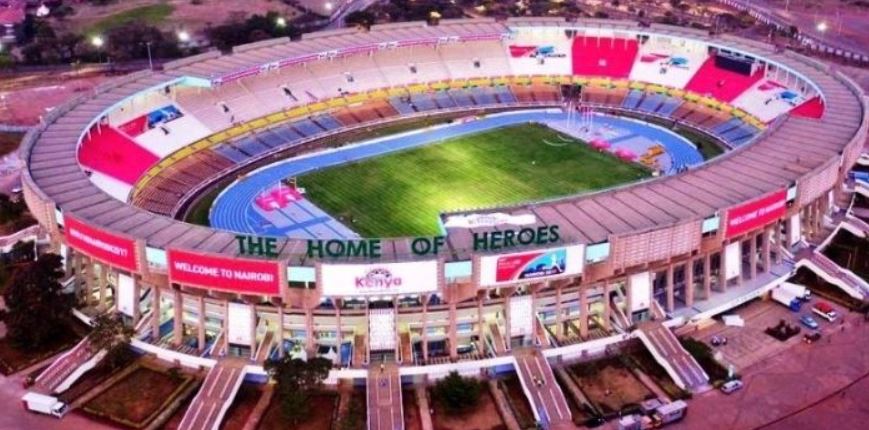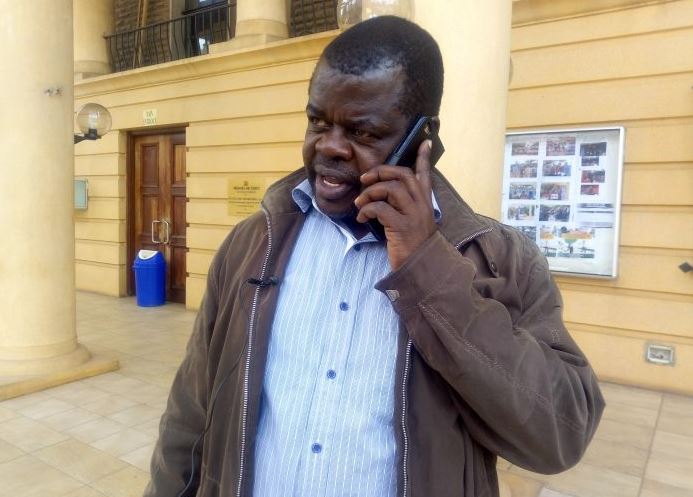
CS Murkomen emphasized that the government is keen on ensuring these facilities deliver value for money, particularly through revenue collection, which could be used for maintenance and further development of the country’s sports infrastructure.
The sale of naming rights is a common global practice that allows governments to recoup investments made in large-scale projects. Facilities like Kasarani Stadium, Nyayo Stadium, and the upcoming Talanta Sports City present prime opportunities for Kenya to tap into this lucrative avenue by attracting corporate sponsors.
Murkomen reiterated the Ministry’s eagerness to receive bids from potential investors.
“We are very open to offering naming rights. You don’t need to take over the entire stadium; investors can acquire naming rights, as well as advertising space on the screens or stadium sideboards. We are ready and willing to sell the naming rights of these stadiums,” Murkomen explained. He added that holding onto traditional names should not stand in the way of securing much-needed resources, which could benefit the public.
Murkomen made these remarks while inspecting the construction progress at the proposed Karatu Stadium in Gatundu South, Kiambu County. He stressed that the stadium would retain its local significance regardless of whether a global company acquired its naming rights. The funds raised, he pointed out, would go toward talent development and improving the region’s sports ecosystem.
“Karatu Stadium will still be in Karatu even if it’s named after any company in the world. The resources generated can help develop talent in the area. We need to move beyond maintaining facilities solely for prestige. We want to see our sports venues generating revenue,” he stated.
Also Read – CS Murkomen: Why Government Shouldn’t Own Stadiums
The idea of selling naming rights in Kenya is not new, although it has faced challenges in the past. One notable example occurred in 2009 when a lucrative three-year, multimillion-shilling deal with Coca-Cola to rename Nyayo National Stadium was scrapped.
The government blocked the Kes120 million agreement, citing the stadium’s historical significance. The stadium was briefly renamed Coca-Cola National Stadium, but following protests from parliamentarians and the Ministry of Sports, the partnership was terminated after just three months, and Nyayo’s original name was restored.
Reflecting on the failed deal, Murkomen highlighted that Kenya has since moved beyond such symbolic gestures, advocating for a more pragmatic approach to managing sports facilities.
“We have moved past that as a country; we are now beyond the stage of prestige, where things are kept for the sake of appearances. There must be value for money and value for our people. If Coca-Cola had invested Ksh100 million in Nyayo Stadium at that time, imagine what we could have achieved. We could have built another stadium,” he noted.
Despite the challenges in the past, some successful deals have transformed Kenya’s sports facilities. In 2015, Britam won the branding rights for Nyayo Stadium in a Kes.100 million deal, which spanned two years.
Similarly, in 2013, Safaricom signed a contract with Sports Kenya to rename Kasarani Stadium and the Indoor Arena for Kes.55 million over three years. These partnerships resulted in significant improvements, including branding, signage, and regular maintenance, which enhanced the overall quality of the facilities.
As Kenya prepares for major upcoming events like the African Championships (CHAN) in February 2024 and the 2027 Africa Cup of Nations, the value of naming rights for venues like Kasarani, Nyayo, and Talanta Sports City is expected to rise. The funds invested in renovations and new constructions are likely to make these arenas more attractive to corporate investors.
“The value will be determined by the market; for now, I cannot specify how much. We will conduct a valuation of the stadiums and open bidding for interested investors,” said Pius Metto, Director General of Sports Kenya.
With this strategy, the government hopes to boost revenue, modernize its sports infrastructure, and foster the growth of sports in the country.








